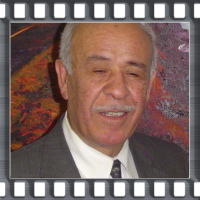Parliament member killed in bomb explosion in Beirut
A pro-government Parliament member and six others were killed in a bomb explosion in a Christian suburb east of the Lebanese capital.

The blast targeted Antoine Ghanem, 64, a member of the right-wing Christian Phalange Party, said the officials, speaking on condition of anonymity because they were not authorized to speak to the press.
The Voice of Lebanon radio station, which is owned by the Phalange party, also confirmed Ghanem's death. The identities of the others killed were not immediately known.
The attack occurred six days before Parliament was scheduled to meet to elect a new president in a deeply divisive vote. Ghanem is the eighth prominent anti-Syrian figure assassinated since 2005, including four lawmakers from the majority, reducing the ruling party's margin in Parliament.
Security officials said 22 people were wounded in the blast on a main street in the Sin el-Fil district. The explosion severely damaged nearby buildings and set several cars on fire. It sent a cloud of gray smoke over the area, and blood and debris covered nearby streets.
Explosive experts were seen sifting through the engine of Ghanem's car, which was blown at least 50 meters (165 feet) away by the force of the explosion. Bystanders, looking shocked, watched as ambulances and civil defense workers searched for more victims.
"It is clear, lawmakers from the (anti-Syrian) majority are being liquidated," Cabinet Minister Ahmed Fatfat told The Associated Press. He said he blamed the Syrian regime for the assassination. "It is the only regime that does not want presidential elections in Lebanon to be held," he said.
Former Lebanese President Amin Gemayel, who heads the Phalange Party, said Lebanon's democracy was at stake.
"It's not anymore a question of presidential elections. It's a question of the survival of this country and democracy in the country that's at stake for the time being," Gemayel told CNN. The former president's son, Cabinet minister and lawmaker Pierre Gemayel, was assassinated in November.
Syria condemned the attack, which it said was meant to sabotage efforts by the Lebanese people to reach agreement.
"This criminal act aims at undermining efforts made by Syria and others to achieve a Lebanese national accord," Syria's state-run news agency SANA quoted an anonymous Syrian official as saying.
The assassination of anti-Syrian figures began with former prime minister Rafik Hariri, who was killed in a massive car bombing that year. Syria's opponents in Lebanon have accused Damascus of being behind the killings, a claim Syria denies.
Hariri's death sparked massive protests that helped bring an end to Syria's nearly 30-year domination of Lebanon. Damascus was forced to withdraw its troops from Lebanon in 2005, and a government led by anti-Syrian politicians was elected.
Since then, the government of U.S.-backed Prime Minister Fuad Saniora has been locked in a power struggle with the opposition, led by Syria's ally Hezbollah. Government supporters have accused Syria of seeking to end Saniora's slim majority in parliament by killing off lawmakers in his coalition.
After the assassination of Lebanese Parliament member Walid Eido in June, many majority legislators had to leave the country to spend the summer abroad for security reasons. Others who stayed in Lebanon took extra security.
Ghanem was traveling Wednesday in a car with regular license plates, his blue plate hidden in the trunk, apparently as a security measure. Fatfat told AP that Ghanem returned two days ago from abroad where he had been taking refuge for the past two months.
According to local papers, a landmark hotel near the Parliament building in downtown Beirut has been rented for majority members to protect them during the 60-day presidential election process, which begins Tuesday.
Wednesday's bombing heightens tensions before the presidential vote that already threatens to throw the country into deeper turmoil. Many fear divisions over the presidency could lead to the creation of two rival governments, a grim reminder of the last two years of the 1975-90 civil war when army units loyal to competing administrations battled it out.
Pro-Syrian Emile Lahoud is due to step down from the presidency by Nov. 23, and government supporters see the vote as the opportunity to put one of their own in the post. Hezbollah and its allies have vowed to block any candidate they don't approve of - and they can do so by boycotting the vote, preventing the necessary two-thirds quota.
If no candidate is agreed on by the time Lahoud steps down, Saniora and his Cabinet would automatically take on executive powers. If that happens, opposition supporters have said Lahoud might appoint a second government, a step many fear would break up the country.
With Ghanem's death, Saniora supporters hold 68 of parliament's 128 seats, compared to the opposition's 59.
Subscribe to Pravda.Ru Telegram channel, Facebook, RSS!


